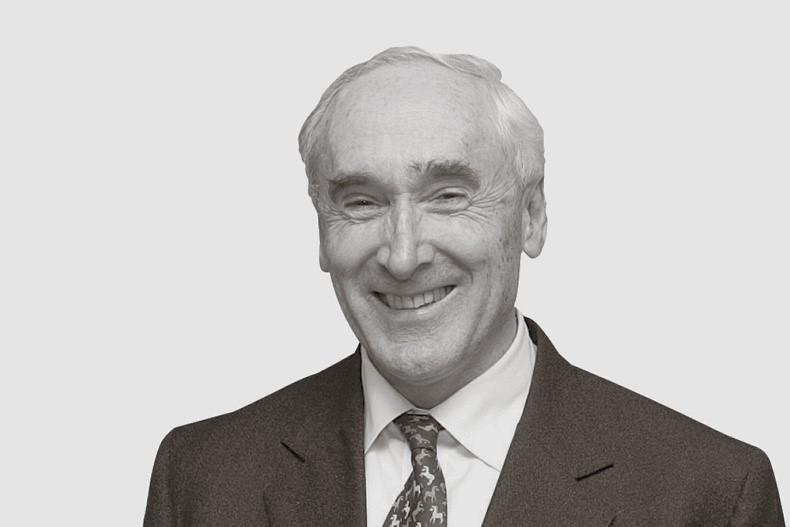With the aftermath of the general election still occupying political minds and coronavirus occupying the media, the latest assessment of Ireland’s progress by the highly credible OECD organisation makes fascinating reading.
The OECD (Organisation for Economic Co-operation and Development) has a large body of exceptionally well-qualified personnel, which carry out periodic reviews of its 36 member states – essentially the 36 richest countries in the world.
A number of points struck me – particularly in light of the recent election, which was portrayed as a powerful call for change in how Irish society functions
Recently, they carried out an analysis of Ireland, covering a large range of areas, but along with analysis there was a large number of observations and recommendations that would strike a chord with anyone who takes an interest in national development and how we compare with other countries at a similar stage of development.
A number of points struck me – particularly in light of the recent election, which was portrayed as a powerful call for change in how Irish society functions.
It also shows how pensions have risen much faster than prices over the last 18 years
On the plus side, the analysis shows rapid recent economic growth, the emergence of a balanced national budget after the chaos of the 2008-2012 years and a population with “a high degree of contentment”.
It also shows how pensions have risen much faster than prices over the last 18 years – since 2002, prices have gone up by 20% but State pensions by 60%.
The report also shows that a good education is much more available to those without rich parents than is the case in most other countries.
Those on high incomes pay proportionately much higher levels of tax, and so equality across society is more even
Also, in a point which has received a lot of coverage, it shows the Irish tax system to be highly redistributive.
In other words, those on high incomes pay proportionately much higher levels of tax, and so equality across society is more even than the basic gross income figures might suggest.
However, on the negative side, it is clear that in the recent election campaign, if the outgoing government had borne in mind the issues of most immediate concern to the electorate, they might not have suffered so badly at the polls.
The follow-on from this simple statement, but complex fact, flows right through the well-acknowledged flaws in the health system
The first one was the assertion by the OECD analysts that Ireland was the only country in western Europe without universal access to primary healthcare.
The follow-on from this simple statement, but complex fact, flows right through the well-acknowledged flaws in the health system.
They also pinpoint the rapid growth of Dublin as it increasingly outpaces growth in the rest of the country, while housing bottlenecks in the capital have forced longer commutes for more people, with consequent knock-on effects on childcare and family satisfaction.
None of this will come as a surprise – the surprise is more how few seemed to realise the potential for such dissatisfaction among the electorate.
Read more
Food not important to UK economy
With the aftermath of the general election still occupying political minds and coronavirus occupying the media, the latest assessment of Ireland’s progress by the highly credible OECD organisation makes fascinating reading.
The OECD (Organisation for Economic Co-operation and Development) has a large body of exceptionally well-qualified personnel, which carry out periodic reviews of its 36 member states – essentially the 36 richest countries in the world.
A number of points struck me – particularly in light of the recent election, which was portrayed as a powerful call for change in how Irish society functions
Recently, they carried out an analysis of Ireland, covering a large range of areas, but along with analysis there was a large number of observations and recommendations that would strike a chord with anyone who takes an interest in national development and how we compare with other countries at a similar stage of development.
A number of points struck me – particularly in light of the recent election, which was portrayed as a powerful call for change in how Irish society functions.
It also shows how pensions have risen much faster than prices over the last 18 years
On the plus side, the analysis shows rapid recent economic growth, the emergence of a balanced national budget after the chaos of the 2008-2012 years and a population with “a high degree of contentment”.
It also shows how pensions have risen much faster than prices over the last 18 years – since 2002, prices have gone up by 20% but State pensions by 60%.
The report also shows that a good education is much more available to those without rich parents than is the case in most other countries.
Those on high incomes pay proportionately much higher levels of tax, and so equality across society is more even
Also, in a point which has received a lot of coverage, it shows the Irish tax system to be highly redistributive.
In other words, those on high incomes pay proportionately much higher levels of tax, and so equality across society is more even than the basic gross income figures might suggest.
However, on the negative side, it is clear that in the recent election campaign, if the outgoing government had borne in mind the issues of most immediate concern to the electorate, they might not have suffered so badly at the polls.
The follow-on from this simple statement, but complex fact, flows right through the well-acknowledged flaws in the health system
The first one was the assertion by the OECD analysts that Ireland was the only country in western Europe without universal access to primary healthcare.
The follow-on from this simple statement, but complex fact, flows right through the well-acknowledged flaws in the health system.
They also pinpoint the rapid growth of Dublin as it increasingly outpaces growth in the rest of the country, while housing bottlenecks in the capital have forced longer commutes for more people, with consequent knock-on effects on childcare and family satisfaction.
None of this will come as a surprise – the surprise is more how few seemed to realise the potential for such dissatisfaction among the electorate.
Read more
Food not important to UK economy









SHARING OPTIONS